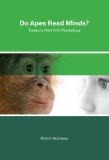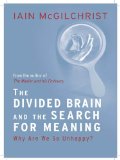July 30, 2012

The Foundations of Cognitive Archaeology by Marc A. Abramiuk (MIT Press, 2012)
(amazon.co.uk)
Book description from the publisher:
In The Foundations of Cognitive Archaeology, Marc Abramiuk proposes a multidisciplinary basis for the study of the mind in the past, arguing that archaeology and the cognitive sciences have much to offer one another. Abramiuk draws on relevant topics from philosophy, biological anthropology, cognitive psychology, cognitive anthropology, and archaeology to establish theoretically founded and empirically substantiated principles of a discipline that integrates different approaches to mind-related archaeological research.
Abramiuk discusses the two ways that archaeologists have traditionally viewed the human mind: as a universal or as a relative interface with the environment. He argues that neither view by itself can satisfactorily serve as a basis for gleaning insight into all aspects of the mind in the past and, therefore, the mind is more appropriately studied using multiple approaches. He explains the rationale for using these approaches in mind-related archaeological research, reviewing the literature in both cognitive psychology and cognitive anthropology on human memory, perception, and reasoning. Drawing on archaeological and genetic evidence, Abramiuk investigates the evolution of the mind through the Upper Paleolithic era–when the ancient mind became functionally comparable to the modern human mind. Finally, Abramiuk offers a model for the establishment of a discipline dealing with the study of the mind in the past that integrates all the approaches discussed.
Google Books preview:
Comments (0)
- cognitive science,culture,human evolution,new books
July 29, 2012

Do Apes Read Minds?: Toward a New Folk Psychology by Kristin Andrews (MIT Press, 2012)
(amazon.co.uk)
Book description from the publisher:
By adulthood, most of us have become experts in human behavior, able to make sense of the myriad behaviors we find in environments ranging from the family home to the local mall and beyond. In philosophy of mind, our understanding of others has been largely explained in terms of knowing others’ beliefs and desires; describing others’ behavior in these terms is the core of what is known as folk psychology. In Do Apes Read Minds? Kristin Andrews challenges this view of folk psychology, arguing that we don’t consider others’ beliefs and desires when predicting most quotidian behavior, and that our explanations in these terms are often inaccurate or unhelpful. Rather than mindreading, or understanding others as receptacles for propositional attitudes, Andrews claims that folk psychologists see others first as whole persons with traits, emotions, and social relations. Drawing on research in developmental psychology, social psychology, and animal cognition, Andrews argues for a pluralistic folk psychology that employs different kinds of practices (including prediction, explanation, and justification) and different kinds of cognitive tools (including personality trait attribution, stereotype activation, inductive reasoning about past behavior, and generalization from self) that are involved in our folk psychological practices. According to this understanding of folk psychology–which does not require the sophisticated cognitive machinery of second-order metacognition associated with having a theory of mind–animals (including the other great apes) may be folk psychologists, too.
Google Books preview:
See also: Kristin Andrews and Robert Lurz on animals and mindreading at Philosophy TV, author’s articles at PhilPapers
Comments (0)
- cognitive science,new books,philosophy of mind
July 28, 2012

The Divided Brain and the Search for Meaning by Iain McGilchrist is currently $1.50 in the US Kindle store (or £1.02 at amazon.co.uk). (Price is subject to change and may vary by region.)
Book description from the publisher:
In this 10,000-word essay, written to complement Iain McGilchrist’s acclaimed The Master and His Emissary, the author asks why – despite the vast increase in material well-being – people are less happy today than they were half a century ago, and suggests that the division between the two hemispheres of the brain has a critical effect on how we see and understand the world around us. In particular, McGilchrist suggests, the left hemisphere’s obsession with reducing everything it sees to the level of minute, mechanistic detail is robbing modern society of the ability to understand and appreciate deeper human values. Accessible to readers who haven’t yet read The Master and His Emissary as well as those who have, this is a fascinating, immensely thought-provoking essay that delves to the very heart of what it means to be human.
Comments (0)
- consciousness,culture,happiness
Book description from the publisher:
On July 4th, 2012, one of physics’ most exhilarating results was announced: an entirely new kind of particle had been discovered at the Large Hadron Collider. The particle—a Higgs boson—is the key to verifying and understanding the Higgs mechanism that underlies elementary particle masses. Harvard University Professor Lisa Randall, one of the world’s most cited and influential theoretical physicists, and author of the bestselling Knocking on Heaven’s Door and Warped Passages, deftly explains both this epochal discovery and its startlingly beautiful implications.
Comments (0)
- new books,reality





